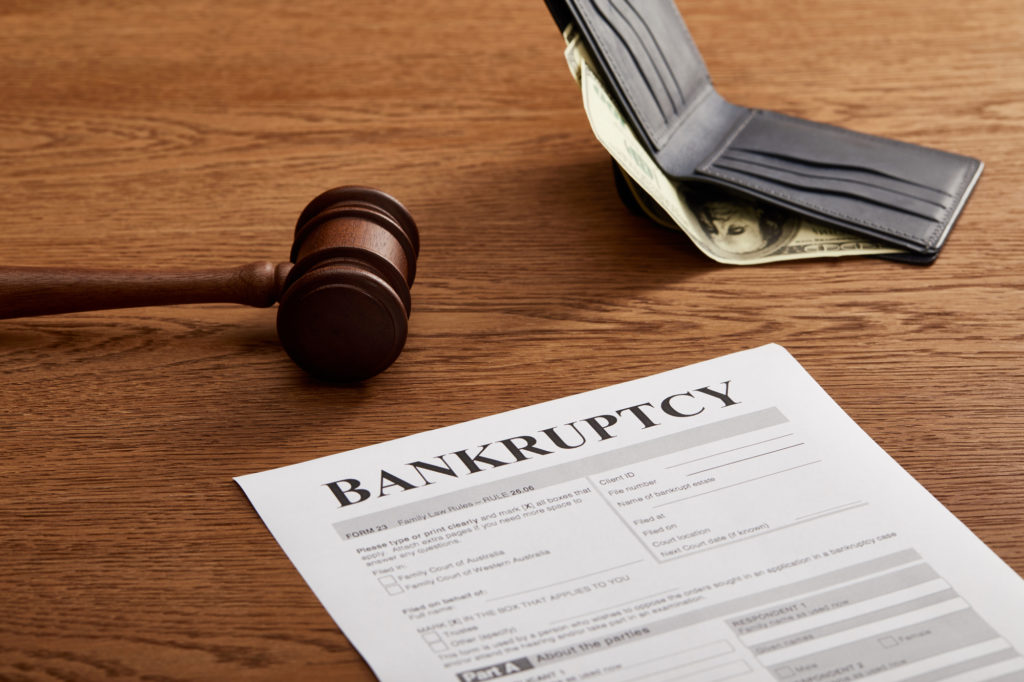Bankruptcy Lawyer
When you set out to start your own business, there’s no telling what the future holds for you. You may make it big and end up more successful than you’d ever imagined, or you may have to close your doors and brush it off as a disappointing (but still educational) learning experience.
Nobody sets out to shutter their business. Unfortunately, due to current events such as the COVID-19 pandemic, it’s been reported that anywhere from 30% to roughly 50% of small American businesses had to close down, either temporarily or for good. The economic impact of events around the world are still being felt, especially on main street.
If your business has fallen on rough times, you aren’t alone. According to the Small Business Administration, there are 32.5 million small businesses in the United States – and they all have battles to fight. However, depending on your situation, you may be weighing whether it’s time to cut your losses. Fortunately, we did the research to answer some important questions about filing for bankruptcy.
Why Should I Consider Declaring Bankruptcy?
As a bankruptcy lawyer residents recommend such as our friends at the Law Offices of Neil Crane can explain, filing for bankruptcy is a very enticing way to get out from under crushing debt. But that new freedom comes at a price, and you’ll need to think long and hard about whether it’s worth the long-term impact before you file for bankruptcy.
What is the Impact of Declaring Bankruptcy?
While declaring bankruptcy is a great way to get a fresh start, there are strings attached. You’ll have to deal with a seriously decreased credit score, and it’ll stay on your record for up to ten years. Aside from your credit taking a hit, you’ll have to deal with challenges getting loans, housing, and even employment (if you decide to shutter your business). Depending on the type of bankruptcy you file, you may also have to liquidate your assets, which is a legal way of saying “sell everything off to pay off your debts”.
What Types of Bankruptcy Can I Consider?
When you’re considering filing for personal bankruptcy, your main options are Chapter 7 and Chapter 13. However, if you’re considering filing for corporate bankruptcy, you can file Chapter 11 bankruptcy as an alternative to Chapter 13. The different choices for bankruptcy are all intended to relieve your financial stress, but you’ll have to weigh whether each choice is right for you.
What is Chapter 7 Bankruptcy?
When you file Chapter 7 bankruptcy, you’re throwing in the towel. Chapter 7 bankruptcy is also known as liquidation bankruptcy, and it involves selling off all your assets to pay off your debts. In a business context, this means selling off all of your business-related investments such as tool, appliances, and anything else.
What is Chapter 11 Bankruptcy?
When you file Chapter 11 bankruptcy, you’re getting another chance. However, you’re not out of the woods. You’ll have to formulate a repayment plan that will satisfy all of your investors and creditors, and you’ll have to stick with it until they’re paid off. You’ll still be able to run the day-to-day activities of your company, but you’ll have to restructure your entire company to make sure it becomes profitable again.
How Can a Bankruptcy Lawyer Help Me?
Filing for bankruptcy isn’t an easy decision. You’ll have to get in touch with a qualified and experienced legal resource who can help you choose which path is best for you. Fortunately, bankruptcy lawyers are able to walk you through your potential choices, and when it’s time for you to decide on the type of bankruptcy you’ll file, your lawyer can help you navigate the whole process.
Get in touch with a bankruptcy lawyer today to learn more.

